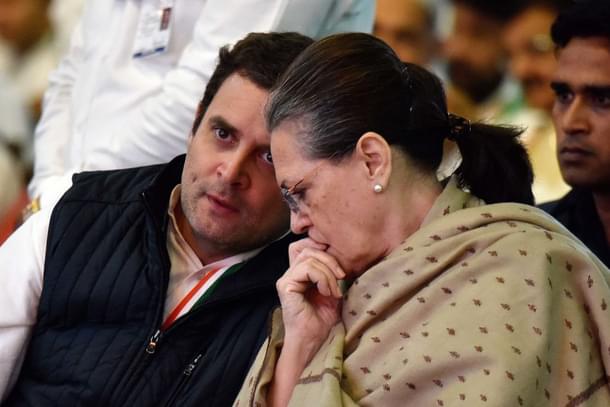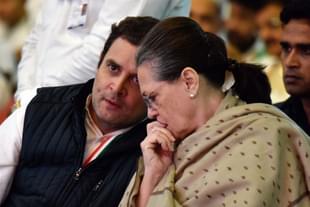Politics
Creaking Under The Burden Of Legacy: Why Amethi and Raebareli Are Underdeveloped
Karan Bhasin
Mar 27, 2019, 12:09 PM | Updated 12:09 PM IST
Save & read from anywhere!
Bookmark stories for easy access on any device or the Swarajya app.


India has witnessed a shift in its politics with development related issues coming to the forefront since the election campaign in 2014. The growth of India’s economy, relatively higher education enrolment rates and a broadened middle class is responsible for this shift in Indian politics. With development at the forefront of electoral campaigns, it is also imperative that we look at development in constituencies to evaluate the performance of individual legislators.
Unfortunately, there are very few constituencies that have the same legislators elected for a prolonged period. These constituencies should have, therefore, witnessed remarkable development as they have a member of Parliament consistently serving them. With the same political leader representing the people of a specific constituency, there is a formation of a social relationship which would be instrumental in the development of the region. In this article, we look at how Faizabad and Raebareli in Uttar Pradesh have fared in this area.
The reason why we picked Faizabad is because Amethi lies in the Faizabad division, and Raebareli and Amethi have been two of the most prestigious constituencies of Uttar Pradesh. These constituencies have been represented by senior Congress leaders from the ‘Gandhi‘ family and they are an ‘excellent’ reflection of the development model that the Congress has to offer. One is almost likely to believe that repeated re-election of the family from these constituencies is a manifestation of the rapid development that they would have brought about under their tenure.
However, the truth is just the opposite. It is the stagnation, lack of development and perpetual dependence upon the ‘family’ that has resulted in a feudal set-up in Raebareli and Amethi, and this set-up is the reason why the family is frequently rewarded during elections. The burden of legacy along with the frequent election doles is responsible for the re-election of members from the family to these key constituencies. Ergo, they are the reason why these two constituencies lag in development.
Having personally visited Raebareli recently, it was surprising to see how the district, just miles away from the capital city of Lucknow, continues to be backward without adequate medical or educational facilities. Besides that, due to lack of employment opportunities, a significant part of the population of Raebareli frequently look for jobs in other big cities like Lucknow and Kanpur. Anecdotal evidence from multiple sources reveals similar stories and trends.
However, personal experiences and anecdotal evidence can be subjective, so I decided to look at the National Family Health Survey 4 data for these districts before drawing any conclusions about their development.
As it turns out, the situation in both Raebareli and Faizabad (used as a proxy for Amethi) are very bleak with less than 30 per cent of women getting complete antenatal care visits. This has severe health ramifications for both the mother and the newborn.
For a constituency that was represented by two very senior women politicians – one of whom also became India’s prime minister – it is disappointing to see how poor the maternal health indicators are. The same is true for coverage of all basic vaccinations and the percentage of children with anaemia. Neglecting maternal health and vaccination, which are critical requirements in the development of the child, is bound to expose the poor to greater vulnerability.
The high percentage of children with anaemia further substantiates this concern and it also presents a grim picture of the impact of India’s nutrition programme in the region. Incidentally, to benefit from certain government programmes, it is imperative that a birth is registered, however, here too both the districts of Raebareli and Faizabad falter with nearly 20 per cent of child births being unregistered. For all the talk of ‘women empowerment’ by successive Congress presidents, the reality in their home constituencies reflect their hollow promises and a complete lack of interest towards development of what they claim to be “their legacy”.
Another interesting finding is that for Uttar Pradesh in general, there is a shortage of 33 per cent of public healthcare infrastructure. For the prestigious constituency of Raebareli, this figure is at 43 per cent while for Faizabad it is at 39 per cent. While the new UP state government is working towards providing adequate healthcare facilities and the NITI Aayog is ramping up the process of setting up health and wellness centres across India to meet this deficit, a key question to ask is that why do these prestigious constituencies lag the state average?
Official statistics have shown that both Raebareli and Amethi have fallen behind to languish amongst the backward districts of India in terms of literacy rates and socio-economic parameters. In 2006, Raebareli was also declared a backward district and was provided grants for further development. However, the situation after nine years is still a cause for concern as these districts continue to lag compared to other districts that have done exceedingly well over the last couple of years. In fact, NFHS-4 shows how Faizabad has an even lower number of children who have received full immunisation and women, complete antenatal healthcare.
With Amethi and Raebareli being the prestigious constituencies for the Congress, the lack of development in these districts over decades serves as an excellent example of the Congress model of development. Data categorically shows that under this model, only minor development has taken place with the entire constituency and its people burdened with the legacy of the family.
Both Rahul Gandhi and Sonia Gandhi had a significant influence over national politics until 2014, however, their influence was barely used for the development of their constituencies. The point worth highlighting is that if PM Narendra Modi can transform his constituency so much within a span of five years, then what stopped the ‘family’ from doing the same?
It is this burden of the legacy that is dragging down the development of these two constituencies, which has led them to fall further behind in development as other districts witnessed rapid progress over the last couple of decades.
With the upcoming elections, it is evident that the lack of performance of Amethi’s MP has been acknowledged as media reports suggest that Rahul Gandhi may contest from another “safe” seat, the choice of contesting from two seats must be viewed as an admission of the failure of the family to develop Amethi.
The story of Amethi and Raebareli are like the story of India before 2014 when only 38 per cent of Indians had access to sanitation, 2.5 crore households did not have electricity and 4.7 crore Indians lacked LPG connections. It is evident that the family model of development failed not just Amethi and Raebareli but also India. While India is free from this model, it is time to free both these constituencies from the legacy of the family. The sooner we liberate them, the sooner can the people be freed from the burden of such a feudal relationship that has ensured their suppression.





